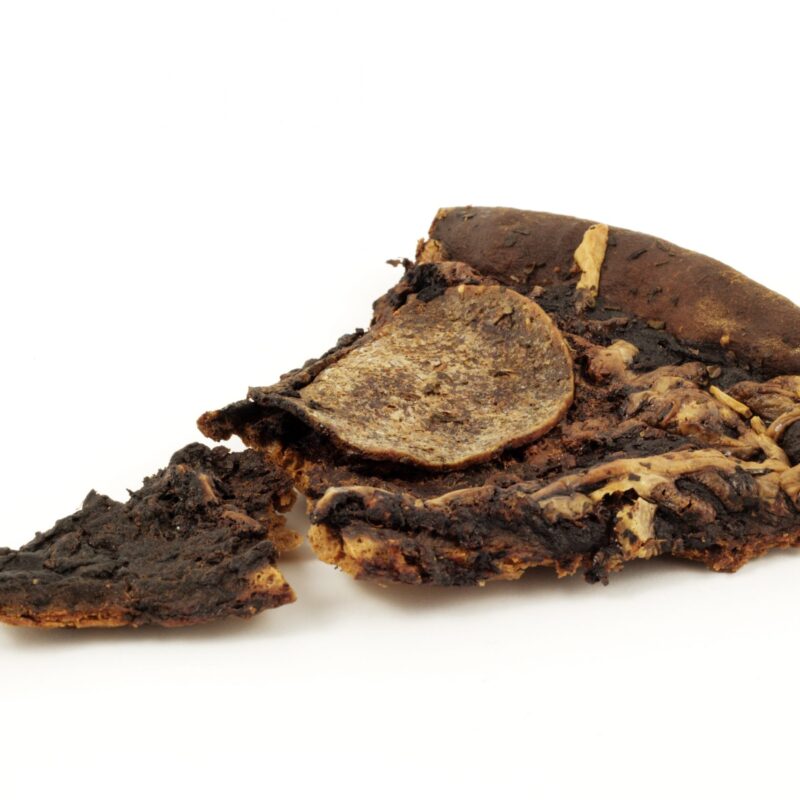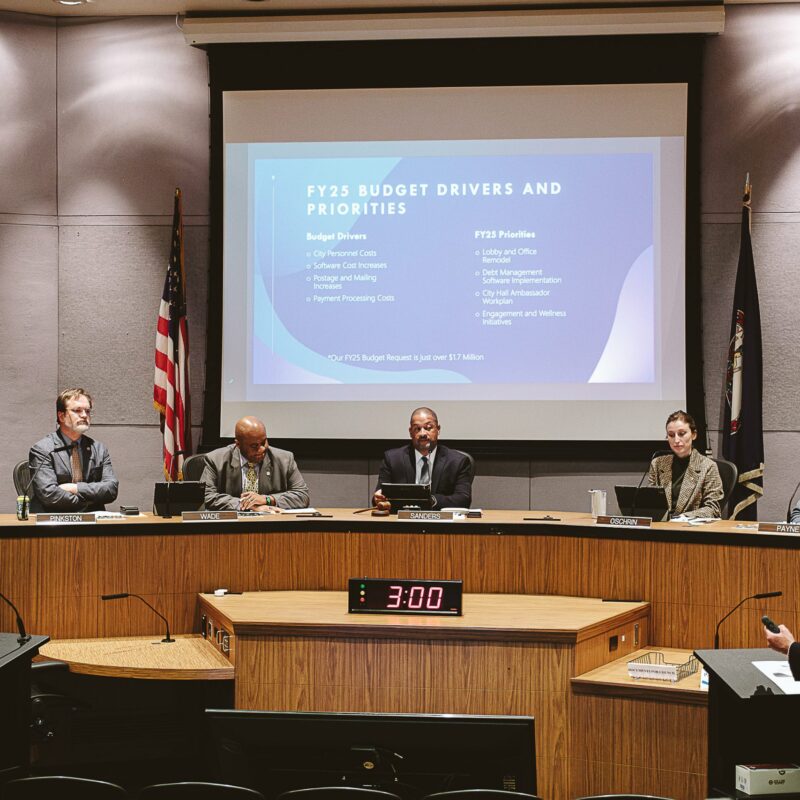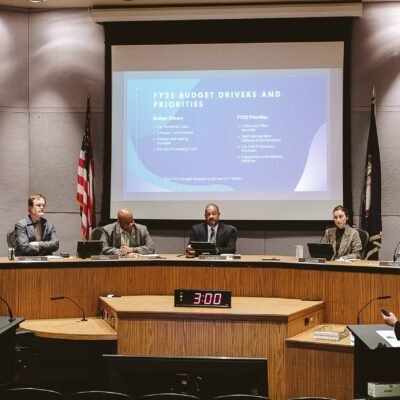|
Ted Genoways says that there’s “no question” his own writing time is more structured now than when he first took the position as VQR editor. |
Being arguably the best literary magazine in the country means more than outliving the rest of ’em, and Ted Genoways knows it. After he became the editor of the Virginia Quarterly Review in 2003 and steered it to a few National Magazine Awards, 38-year-old Genoways wrote an editorial for Mother Jones magazine and, in no uncertain terms, made his case for the salvation of all literary journals.
“Young writers will have to swear off navel-gazing in favor of an outward glance onto a wrecked and lovely world,” wrote Genoways, as if to upend the salt shaker of academia and dump its next generation of writers back into the real world.
Not long after his essay appeared—and with a recent Guggenheim Fellowship to his name—Genoways says that he received plenty of responses that were “angry or outraged.
“But that was part of the purpose,” he says. “To try to encourage people or jolt people to think about things a little bit differently, and see if they could challenge themselves to work in a different direction.”
Genoways posed the same challenge to his three-person VQR staff in 2003 and, during his time as editor, the journal has expanded its sense of obligation. Alongside the usual fare of new fiction and poetry, VQR started directing the gaze of its readers away from its pages and towards the larger world, with special issues on modern crises in North Africa and South America, or the psychological costs of war.
“When I took over, there were three staff members—including the editorial position,” says Genoways. “There are now five staff members, and we’re in the process of adding a sixth, and so the number of things that we can take on are growing.” Challenge enough for any other journal in the country to keep up.
What does Ted Genoways keep on his desk?
The editor of Virginia Quarterly Review keeps more than a few back issues handy
• A can of pork brains and milk gravy. Genoways and local reporter Jesse Dukes are working on a story about the product for Harper’s Magazine; Genoways says that each can contains about two weeks’ worth of cholesterol.
• A pack of “Get the Hint” sticky notes, which include the phrases “Great Shit,” “Bullshit” and “Holy Shit.”
• Advance copies of books, including Mark Twain: The Adventures of Samuel L. Clemens. Genoways says that VQR is looking ahead to the centenary of Twain’s death—April 21, 1910—for possible reviews.
• Stacks of previous VQR issues. “Sometimes, I feel like I forget how to put the magazine together,” jokes Genoways.
• A 12-oz can of Coca-Cola. Even early in the day, “there’s always a can of Coke,” says Genoways. “It’s how I stay Southern.”
• A portrait of James Southall Wilson, founder of VQR and editor from 1925 until 1931.
• A copy of Ralph Waldo Emerson’s thank-you note to Walt Whitman, for sending Emerson a copy of Whitman’s masterpiece, Leaves of Grass. Whitman, says Genoways, was a great self-promoter; part of Emerson’s letter was reprinted along the spine of the book’s second edition.






